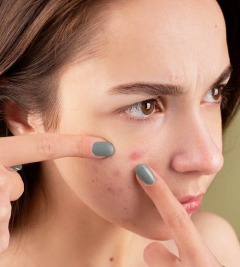
Acne
Acne is a common skin condition caused by clogged follicles that can affect people of all age groups at any point of time. Though acne is not harmful, it can be severe and in some cases very persistent and annoying. It can leave ugly, sometimes permanent, scars on the skin.
At Alovia, we help you in getting radiant skin by managing acne with suitable treatment options based on your skin condition.
Acne is a skin condition caused by clogged follicles. The sebum (oil), dirt, dead skin can clog the pores resulting in acne. If not managed well, it can leave ugly, sometimes permanent, scars on the skin.
In simple terms, any of the following can be acne
- Whiteheads
- Blackheads
- Pimples
- Red bumps with or without pus
- Cysts
Acne usually occurs in the T-Zone (forehead, nose, and chin), shoulders, back, and chest.
Causes of acne range from hormonal changes, side effects of certain medication, diet, stress levels, weather (hot and humid), hereditary, using wrong skin care products, etc. In some cases, especially for adults, a sudden flare of acne may indicate underlying issues.
Mild acne can be managed with different home remedies or over-the-counter medicines. However, for severe acne, it is best to seek professional help
Depending on the severity of the skin condition, the dermatologist may suggest the course of treatment best suited to manage it. It could be,
- Topical application medicine
- Oral medication
- Therapies like laser treatment, chemical peeling, and usage of steroids
Many myths are floating around about acne. Do not get influenced by them and seek the right information and make the right choice when it comes to the line of treatment. At Alovia clinic we help you in understanding the causes of your acne and provide the treatment accordingly
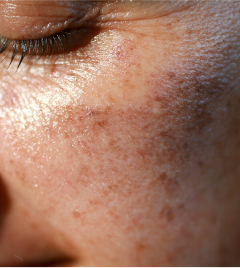
Pigmentation and melasma
Pigmentation and melasma affect millions of people worldwide. It leaves dark patches (and freckles) on the skin. Pigmentation can be caused by underlying medical conditions and in some cases due to external factors. It is a good idea to understand the cause first before opting for a treatment.
At Alovia, we offer a combination of treatments for pigmentation and melasma depending on the patient’s history. Rest assured, we have the best dermatologists to help you in getting an even skin tone.
Pigmentation and Melasma are common, harmless skin conditions that happen because of overproduction of the skin pigmentation cells. They leave dark patches (and freckles) on the skin. They usually affect the part of your skin exposed to the sun and sometimes also occur due to hormonal changes in the body.
Statistically, women are at higher risk of getting affected by pigmentation and melasma than men.
Mild pigmentation and melasma go away on their own, but for other cases, professional help is required.
It is always a good idea to reach out to a dermatologist to seek treatment for Melasma. Sometimes, skin cancer can look like melisma, and in such extreme cases, the dermatologist can conduct a skin biopsy during the visit to the clinic.
The first step towards managing pigmentation is to control your exposure to the root cause, like UV rays emitters, and improve your overall intake of Vitamin C and D.
The dermatologist can then provide a combination of treatments ranging from
- Topical medication
- Micro dermabrasion
- Dermabrasion
- Chemical peeling
- Laser therapy
Alovia clinic is well equipped with the latest equipment and experienced doctors to help you in getting rid of the pigmentation. Call us today to know more.

Psoriasis
Psoriasis is a chronic autoimmune skin condition caused by the rapid multiplication of skin cells leading to itchy red scaly patches all over the affected area. Psoriasis usually affects the scalp, elbows, knees, lower back, but in some cases, it can occur on any part of the body. The severity and symptoms of Psoriasis vary for an individual.
There are different types of psoriasis.
- Plaque psoriasis is most common and the patient gets patches with white-silver scales.
- Guttate psoriasis is common in childhood and appears as pink spots on the skin.
- Pustular psoriasis is common in adults and causes pus-filled blisters.
- Inverse psoriasis majorly affects skin folds.
Psoriasis runs in the family but is not contagious.
Psoriasis is sometimes cyclic, i.e. it appears for some time and then subsides and then appears again.
People with psoriasis may get other associated medical conditions, hence disease management should be done on a priority basis to stop any further complications.
Physical examination by an experienced dermatologist will help in understanding the extent of the disease. In some cases when the symptoms and other medical factors are ambiguous, then the doctor may recommend a biopsy.
Treatment of psoriasis includes topical applications, medication like retinoids, light therapy, etc. Your doctor may recommend certain lifestyle changes for disease management.
Our experts at Alovia can help you in getting the right treatment by understanding the symptoms and suggesting the appropriate course of action.
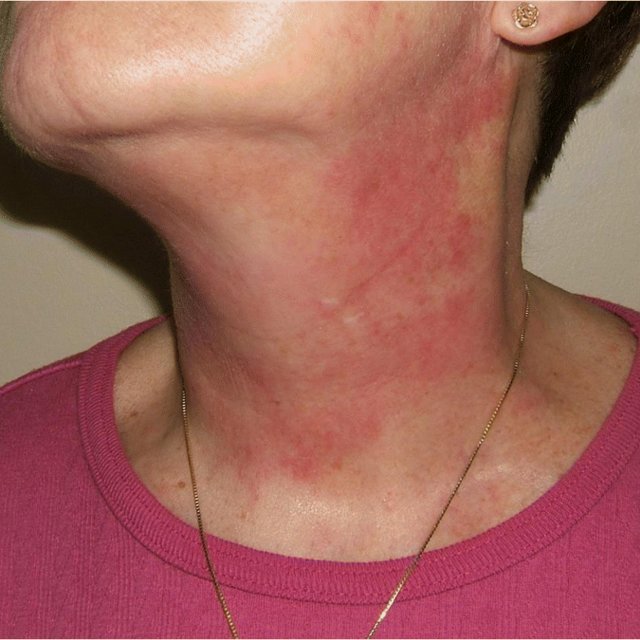
Contact Dermatitis
Contact dermatitis symptoms can be managed easily at home if they are mild. However, in case of severe dermatitis, it is better that you see a doctor. Depending on the severity of your symptoms, the doctor can suggest the use of topical applications like skin-soothing lotions, anti-itch creams, steroids, etc. Besides this, he/she can recommend you undergo skin patch allergy tests to identify your triggers.
Contact dermatitis is a common non-severe skin condition. It is not contagious.
- It can be due to the reaction to chemical agents that come in contact with your skin like acid fumes, sprays, fragrances, etc.
- Sometimes contact dermatitis is because of the allergic reaction to skincare products, jewelry, or any other product that comes in direct contact with the skin.
- Another type of contact dermatitis is due to photosensitivity of skin when a skin product is applied leading to irritation.
Typical contact dermatitis symptoms are red rashes, dry/cracked itchy skin, blisters, and tenderness.
Alovia's team of experts can help you contact dermatitis management. Reach out to us to know more.
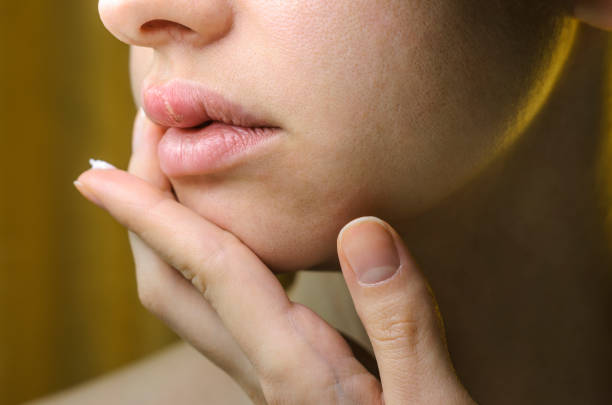
Herpes Simplex/Zoster
Herpes simplex is an infection caused by the simplex virus. It is of two types: oral and genital. In oral herpes, blisters are formed in/around the mouth. Genital herpes is a sexually transmitted disease and stays with the patient throughout his/her life.
Oral herpes patients are asymptomatic in many cases.
Symptoms for genital herpes are variable and sometimes so mild that they are often misunderstood as some other type of skin infection.
Once infected, there are stages that progress over a period of time.
- Primary stage: It starts after 2-7 days of getting infected and causes painful blisters, which may become sores later.
- Latent stage: It usually does not involve blisters and the virus reaches the nerves near the spine
- Shedding stage: When the virus starts multiplying and becomes contagious. It can spread through body fluids.
Herpes needs immediate attention. A skilled doctor will examine the sores and send the body fluids for culture. Immediate treatment can be started once herpes is diagnosed correctly. There is no permanent cure for this disease, however, the symptoms can be managed easily with proper medication.
Herpes zoster is caused by the reactivation of dormant varicella-zoster that causes chickenpox and shingles. The disease is self-limiting in most cases. However, severe cases need immediate medical intervention.
Reach out to experts at Alovia who have experience in treating venereal diseases and herpes zoster.
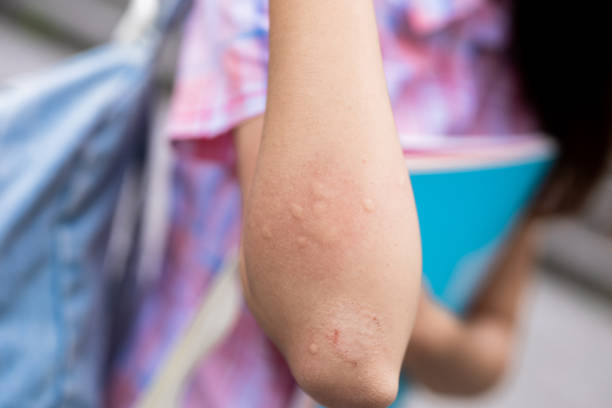
Urticaria / Hives
Urticaria, also known as Hives, are itchy bumpy red rashes caused by allergic reactions, physical triggers, or underlying medical conditions.
Hives are usually not contagious, but in some exceptional cases can be transmitted.
Hives can be treated with a course of antibiotics and/or anti-inflammatory medicines. But these should be taken under the doctor’s care.
Avoiding physical triggers also helps in hive treatment plans.
Urticaria is not life-threatening but sometimes leads to a dangerous condition called anaphylaxis, which is a severe allergic reaction. And that is the time when you should visit the doctor immediately since anaphylaxis can be life-threatening.
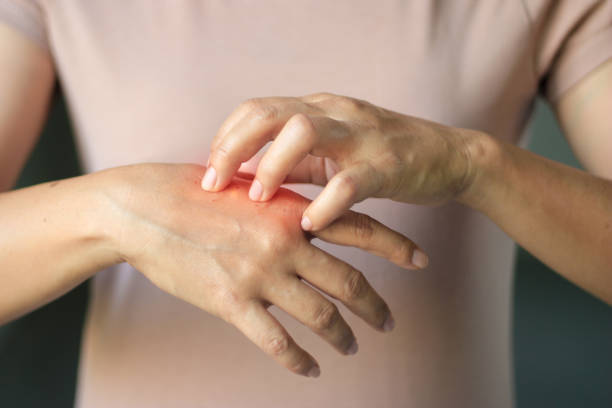
Fungal Infection
There are millions of species of fungi. Some of them may be of dermatological concern and can cause skin infections. The most common infections are athlete's foot, ringworm, and yeast infections (candida, oral thrush, etc).
The symptoms of fungal infections include skin rashes, itchy skin, blisters, or scales. Fungal infections can appear at any part of the body, but they are most common in skin folds.
Fungal infections can affect anyone, but there is a category of people who are at a higher risk. For example, people with weak immunity, obesity, diabetes, pregnant women, and babies (diaper rashes). Besides this, sharing of personal items, high humidity, wearing tight clothing, not maintaining proper hygiene puts a person at high risk.
Fungal infections occur with direct contact, either with the item with fungal spores or a person/animal with the infection. While fungal infections can be contagious, they are not dangerous and can be treated easily with the help of a proper diagnosis and treatment plan.
Fungal treatments include
- Antifungal creams/powders/sprays
- Oral medication
Alovia’s team of experts can help you with the right diagnosis and the extent of fungal infection and offer you the right treatment plan.
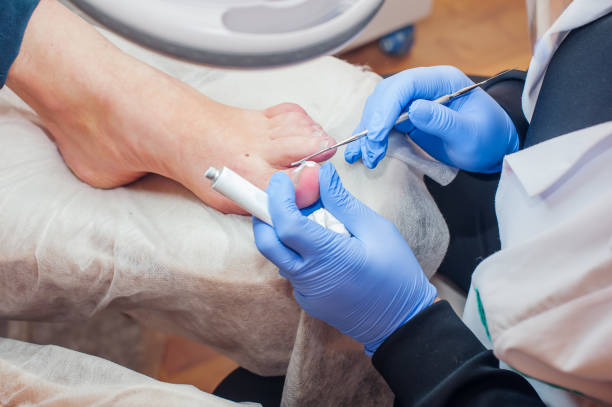
Nail Diseases
The health of your nails can indicate your overall well-being. Healthy nails are smooth and shiny, and any discoloration means a red flag. It is time to see a doctor to understand the underlying cause, which could be minor and in some cases critical, like thyroid disorders, cirrhosis, diabetes, kidney, liver, lung, and heart diseases. Any change in nail texture should not be taken lightly. It is an alarm bell. But there are other factors to be considered too, like metal poisoning, occupational hazards (usage of chemicals), lack of nutrition, bad maintenance, etc.
There are multiple symptoms associated with different conditions. We can list some of them for you here but note that it is better to consult a dermatologist to get the right diagnosis. Symptoms may include, dry and brittle nails, white and dark lines (horizontal/vertical), horizontal grooves, puffy nail folds, clubbed nails, green nail syndrome, etc.
Note that the above-mentioned symptoms are just a part of the bigger picture about your health. Do not ignore any changes that you notice in your nail health and visit a trusted dermatologist to get proper treatment.
Alovia clinic has doctors with extensive experience and can help you in getting to the root cause of any nail issues and direct you to the next course of action accordingly.